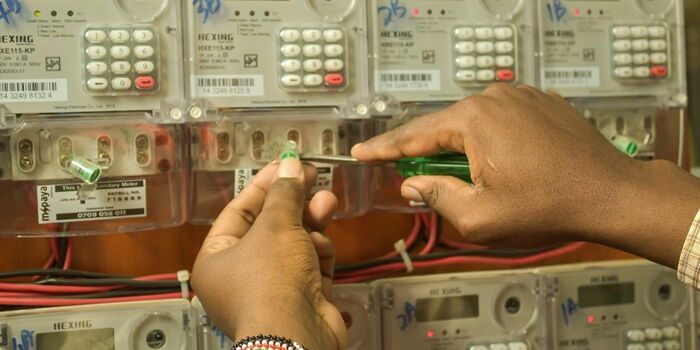Thousands of Kenyan households and businesses are at risk of missing out on much-needed electricity connections due to serious financial challenges currently facing the Kenya Electricity Transmission Company (KETRACO).
According to a recent report, KETRACO is grappling with financial risks totaling approximately Ksh12.97 billion. These risks are largely due to unresolved court cases, compensation claims from contractors, and pending payments to landowners whose land was used for power transmission infrastructure.
Members of the Public Investments Committee on Energy raised the alarm during a meeting held on Tuesday, July 29.
The committee, chaired by Pokot South Member of Parliament David Pkosing, warned that these growing financial obligations could significantly hinder KETRACO’s ability to roll out critical electricity projects across the country.
The meeting involved a thorough review of the company’s audited financial statements from the 2018/19 to 2022/23 financial years. One of the main concerns raised was the ballooning contingent liabilities.
These include disputes with contractors and legal battles over compensation for wayleave access—land set aside for electric power lines. If not resolved quickly, these liabilities could translate into substantial costs for the company.
“If these liabilities are not dealt with, KETRACO may face serious financial difficulties that could severely impact its mandate of delivering electricity to homes and businesses across Kenya,” said MP Pkosing.
A major part of the financial burden was traced back to a terminated contract under the Kenya-Uganda Lessos-Tororo 400kV power interconnection project. This project is part of a broader regional plan to connect and harmonize power grids across East Africa.
While KETRACO told lawmakers that they frequently review these risks to mitigate potential losses, MPs expressed deep concern over how long these issues have remained unresolved.
Another major point of concern was the company’s continued failure to compensate landowners affected by its transmission line projects. As of early 2025, KETRACO still owed Ksh3.39 billion in unpaid wayleave compensation to various landowners.
KETRACO’s Managing Director, Fernandes Barasa Mativo, explained that the delays were due to several factors, including slow release of funds from the National Treasury, prolonged negotiations with landowners, and complicated legal disputes over land ownership and documentation.
“Our work has been slowed down by budget constraints and, in some cases, unclear land records. Still, we are fully committed to ensuring that all genuine claims for compensation are paid in full and on time,” Mativo assured the committee.
Lawmakers also raised concerns about the significant delays in completing four major power transmission projects.
These include the 220kV and 132kV transmission lines and substations, the Power Transmission System Improvement Project, the Kenya–Tanzania Power Interconnection Project, and the Kenyan segment of the Nile Equatorial Lakes Countries Interconnection Project.
Audit reports warn that delays in these projects could lead to even higher costs and extend the duration of electricity shortages, particularly in rural and developing areas that depend on new power lines for growth and investment.
The committee now wants urgent solutions to unlock funds, resolve legal challenges, and speed up compensation, warning that any further delay could deny many Kenyans the opportunity to access reliable electricity—essential for economic growth, education, healthcare, and improved living standards.
Join Gen Z New WhatsApp Channel To Stay Updated On time https://whatsapp.com/channel/0029VaWT5gSGufImU8R0DO30


